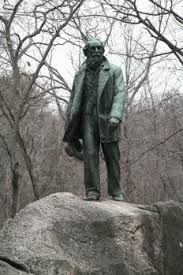Over the past decade or so I have become increasingly interested in why some people seem to have things happen to them all the time, and other people don't. Or, more accurately, why are there times in our lives when it feels like the world is speaking to US, and that we are tuned into something that is awesome and exciting and meaningful? And, inversely, why are there times when we feel unfulfilled, not stimulated and in a rut? Finally, are there skills we can practice that would allow our learning to be get into the zone that University of Chicago professor Mihaly Csikszentmihalyi has dubbed "flow?" He describes flow as "being completely involved in an activity for its own sake. The ego falls away. Time flies. Every action, movement, and thought follows inevitably from the previous one, like playing jazz. Your whole being is involved, and you're using your skills to the utmost." How might "availability" be a precursor to entering into a state of flow with the world, and how might we come to be more available?



One way that I find helpful to start thinking about something so abstract is to use a technique called the "via negativa." This was something I discovered in graduate school reading Christian mystics who were engaged in apophatic theology. This is some fancy language for trying to define something (in their case, God) by starting with what it is not.
Availability, for example, is not simply being open-minded. They are related, but there is a fine distinction between them that makes a big difference. As is the case with other concepts crucial to experience-based learning, availability demands a concentrated level of activity on the part of the person doing the learning. To be open-minded can be achieved by being passive.; you are simply willing to let new things come to you. To be available is to be engaged with your surroundings and your relationship with them in a dynamic way. You can be open to new things but stay in the same place you have always been, to be available is to search out what is around you and connect with it.
One of my favorite people-- who may be right at the top of the all-time "availability list"--is Walt Whitman. What I have learned from Whitman is how to "loaf." The opening of his epic poem "Song of Myself" begins,
I celebrate myself, and sing myself,
And what I assume you shall assume,
For every atom belonging to me as good belongs to you.
I loafe and invite my soul,
I lean and loafe at my ease observing a spear of summer grass.
And what I assume you shall assume,
For every atom belonging to me as good belongs to you.
I loafe and invite my soul,
I lean and loafe at my ease observing a spear of summer grass.
We think of loafing as a negative, but, for Whitman, loafing is an art that ultimately allows him to connect with his surroundings. And that is the major difference between openness and availability--connection. Whitman's genius was his capacity to merge and to fuse with his surroundings--both natural and human. What is extraordinary is that he can do it in solitude or in the bustle of New York City. What is paradoxical about loafing is that it allows you to realize that you are both the same and simultaneously distinct from all that is around us. To become an expert at doing that might make one available on a cosmic level, all from a spear of summer grass.
Whitman must have felt that the world truly was speaking to him, and that it was awesome and exciting and meaningful. Talk about "flow" on the highest level! So, I am wondering, who are other examples of people who are "available?"
No comments:
Post a Comment